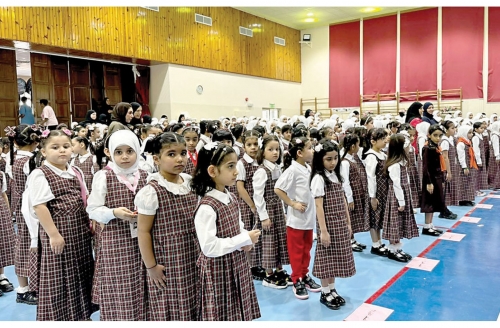Two Bahraini ministries, Education, and Finance have expressed their strong opposition to a proposed law from multiple MPs that would grant an annual allowance to all Bahraini students. The bill suggests giving BD 80 to each of the 137,969 students in public schools and 40,676 students in private schools at the beginning of the academic year, along with a monthly allowance of BD 30. This initiative would cost about BD 78.6 million yearly. The Ministry of Education has raised concerns that the bill would limit the flexibility of using the Future Generations Reserve Fund’s investment returns, potentially affecting investments in other essential areas.
The Ministry of Finance and National Economy has also urged the parliament to reconsider the bill, stating that the Future Generations Reserve Fund, funded by a portion of oil revenue, requires a flexible investment approach to adapt to changing economic conditions. Diversifying investments and keeping a cash reserve for economic crises are crucial to the fund’s risk management strategy. Using the funds for recurring expenses, as proposed in the bill, would gradually deplete the fund, contradicting its primary purpose. The House of Representatives’ Financial and Economic Affairs Committee has recommended rejecting the proposal due to the significant financial burden and the gradual depletion of the Future Generations Reserve Fund.
The proposed bill to provide Bahraini students with yearly allowances has faced strong opposition from the Ministries of Education and Finance, as well as the House of Representatives’ Financial and Economic Affairs Committee. The bill suggests granting BD 80 to each public school student and BD 30 to each private school student at the beginning of the academic year, amounting to approximately BD 78.6 million annually. The Ministry of Education has expressed concerns about the bill restricting the flexibility of using the Future Generations Reserve Fund’s investment returns and potentially hindering investments in other crucial areas.
The Ministry of Finance and National Economy has advised the parliament to reconsider the bill, emphasizing the need for a flexible investment strategy for the Future Generations Reserve Fund to adapt to changing economic conditions. Diversification of investments and maintaining a cash reserve for economic crises are essential components of the fund’s risk management strategy. Using the fund’s funds for recurring expenses, as proposed in the bill, would gradually deplete the fund and contradict its primary purpose.
The bill proposing yearly allowances for Bahraini students has been met with opposition from the Ministries of Education and Finance, as well as the House of Representatives’ Financial and Economic Affairs Committee. The proposed initiative to provide BD 80 to each public school student and BD 30 to each private school student would cost approximately BD 78.6 million annually. The Ministry of Education has expressed concerns about the bill limiting the flexibility of using the Future Generations Reserve Fund’s investment returns and potentially affecting investments in other critical areas.
The Ministry of Finance and National Economy has advised the parliament to reconsider the bill, noting the need for a flexible investment strategy for the Future Generations Reserve Fund, funded by a portion of oil revenue. Diversifying investments and maintaining a cash reserve for economic crises are key components of the fund’s risk management strategy. Using the fund’s funds for recurring expenses, as proposed in the bill, would gradually deplete the fund and contradict its fundamental purpose. The House of Representatives’ Financial and Economic Affairs Committee has recommended rejecting the proposal due to the significant financial burden and the gradual depletion of the Future Generations Reserve Fund.





















